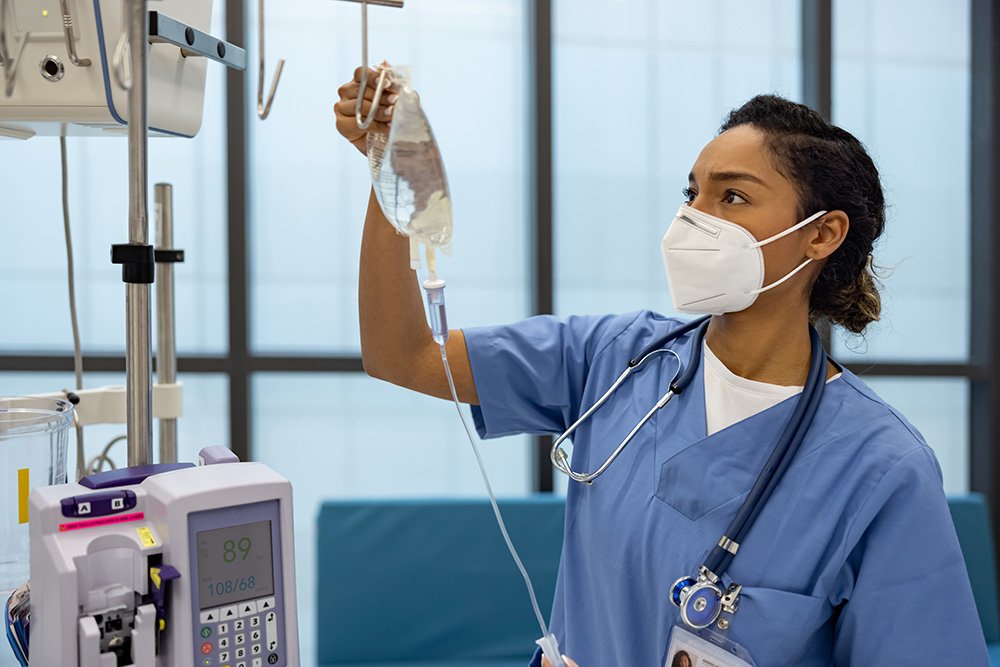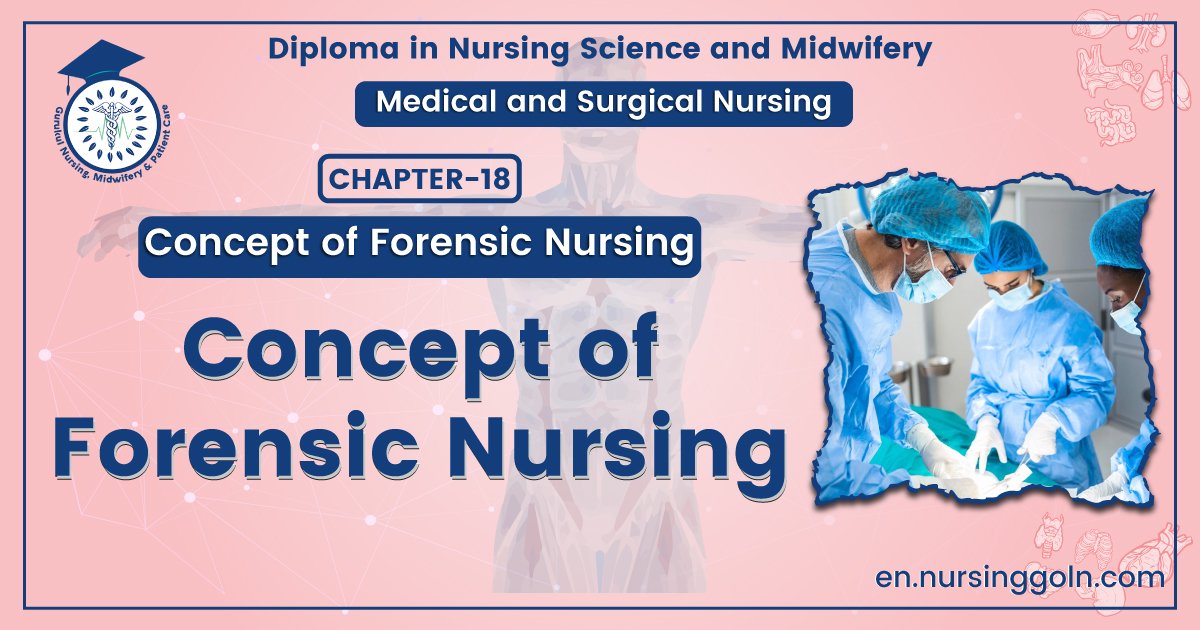Concept of Forensic Nursing – This course is designed to understand the concept of community health nursing: nurses’ roles and interventions in family health, school health, occupational health, environmental health, elderly health care, gender issues, disaster management and principles and terminology of epidemiology. The aim of the course is to acquire knowledge and skills in community health nursing.

Concept of Forensic Nursing
Forensic nursing is defined as the application of the nursing process to public or legal proceedings, and the application of forensic health care in the scientific investigation of trauma and/or death related to abuse, violence, criminal activity, liability, and accidents.
Before there was a specialty recognized as forensic nursing, the term used was clinical forensic medicine. This term describes the use of clinical practices to support judicial proceedings to protect a victim, usually after death has occurred. It was not until the late 20th century that medical professionals wanted more collaboration between the medical and legal systems.
In the United States, this problem began to be addressed. A strong advocate for the forensic nursing specialty in the United States was Virginia Lynch. She pushed to have the specialty recognized and helped to form programs in the U.S. for proper education.
In the 1980s articles were being written about how the important evidence needed to build a legal case was not being preserved during the treatment of a victim. From there began an explanation of the nurse’s role in not just forensic medicine but also the criminal justice system when dealing with a victim of violence.
Definition of Forensic nursing:
Forensic nursing is defined as the application of the nursing process to public or legal proceedings, and the application of forensic health care in the scientific investigation of trauma and/or death related to abuse, violence, criminal activity, liability, and accidents.
Or,
Forensic Nursing is one of the newest specialty areas. It involves working with law enforcement officials to aid in the investigation of crimes such as abuse, accidental death and assault.

Definition of Forensic Nurse:
A forensic nurse is a Registered or Advanced Practice nurse who has received specific education and training. Forensic nurses provide specialized care for patients who are experiencing acute and long-term health consequences associated with victimization or violence, and/or have unmet evidentiary needs relative to having been victimized or accused of victimization.
Or,
A forensic nurse is someone who works with crime victims to gather medical evidence and provide expert testimony that can be used in court. Forensic nursing is a unique specialty that blends the worlds of nursing, science, and the legal system.
According to the International Association of Forensic Nurses (IAFN), forensic nurses do far more than address victims’ physical and emotional needs. They also collect evidence, provide medical testimony in court, and consult with legal authorities.
Roles and Responsibilities of a Forensic Nurse:
Education and Training
A forensic nurse is a registered nurse. In addition to her nursing education, she must complete training in the medical forensic care of a person who has suffered an assault or trauma, such as the victims of a mass disaster. Forensic training courses are offered at some colleges or other educational institutions, as well as online. In addition to their specialized training, forensic nurses may also be certified in their specialty.
Sexual Assault Nurses
A sexual assault nurse examiner, or SANE, is one type of forensic nurse. A SANE takes a patient history; performs a physical and emotional assessment; and documents all her findings and actions. Like all forensic nurses, the SANE may collect specimens such as a patient’s blood, saliva or urine, or samples from a rape victim’s vagina for DNA testing.
She may also take photographs for medical evidence in the courtroom. The SANE understands the legal chain of custody and ensures that all of her findings will be admissible as evidence in court.
Correctional Nurses
Correctional nurses are forensic nurses who work in jails, prisons or juvenile detention centers. Correctional nurses may provide sick call services for inmates who have routine illnesses or determine whether a referral to a physician or hospital is necessary.
They may manage chronic health conditions, such as asthma or high blood pressure, and perform screenings for substance abuse or infectious diseases. Correctional nurses may also gather evidence in cases of prison assaults, in addition to performing the usual nursing duties.
Other Forensic Nursing Activities
Some forensic nurses act as coroner’s investigators, collecting evidence about deaths, including possible homicides. A coroner’s investigator obtains the victim’s medical and social history from relatives or the patient’s doctor, examines the victim’s body; and investigates the scene of the death. Other forensic nurses work in the fields of child abuse, elder neglect or domestic violence.
Any forensic nurse may give expert witness testimony in court. She may testify about her role in the examination of the patient and the collection of specimens. Forensic nurses are often called on to consult with legal authorities or to work with law enforcement personnel.

Another Answer
- A forensic nurse is a nurse who provides specialized care for patients who are victims and/or perpetrators in medico-legal cases.
- Forensic nurses can play an important role in bridging the gap between the law and medicine.
- Nurses trained in this field can document injuries, collect biological fluids, and preserve clothing with evidence of assault.
- In medicolegal practice, it is not uncommon for some significant evidence in poisoning cases, namely, gastric aspirate, vomitus, urine sample, soiled cloth, etc., to be discarded in emergency departments.
- Trained forensic nurses are aware of the importance of this evidence, and they may help in the collection, preservation, and maintenance of the chain of custody of these samples.
- Cases of sexual violence are on the rise, and a tremendous amount of physical and psychological trauma is suffered by the victims of such heinous crimes. A female forensic nurse can readily establish a rapport with these victims of sexual violence. At the same time, these nurses are qualified to provide sexual assault evaluations and victim management.
- On the other hand, forensic nurses may play a significant role in dealing with cases involving mental illness, especially when such people become involved in criminal cases or when criminals are feigning mental illness.
- In the field of death investigation both at the crime scene and during postmortem examination, forensic nurses can also play an important role.
